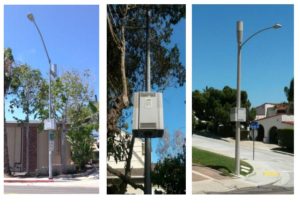“Cities exist because states allow them to,” Councilman Whitney Benzian has said on more than one occasion. Last night he reminded residents of this harsh reality as the city council struggled to adapt to the State of California’s new Accessory Dwelling Unit (ADU) rules. This was the second reading of the ordinance that was approved by the city council on September 19. The vote was 5-0.
The ordinance limits ADUs to 800 square feet, sets parking restrictions, requires at least 26 days occupancy, among other provisions. The council deferred action on owner occupancy, imposing a waste water fee, and setting minimum rental time.
Second readings are generally pro forma affairs. This one brought more than a half dozen residents to the podium to speak out against the regulations and to ask for a workshop on ADUs.
“This is not ready for prime time,” said Dave Sweeney, ”there are too many objections.” He pointed to the parking requirements, a second sewer line hookup and the exclusions of carriage houses as being among the problems in the proposed ADU ordinance.
Carriage houses are unique to Coronado. They are built over garages without kitchens and are seen primarily as a design feature, not a separate residence, City Attorney Johanna Canlas explained.
Sweeney was not alone in his call to allow carriage house to be converted to ADUs, by simply adding a kitchen. “Why not take advantage of what we already have in this town?” Charles Crehore asked. Council members agreed the ordinance was less than perfect.
“The actions we are taking today are not perfect,” said Mayor Richard Bailey. ”It is a prudent move to adopt this action while we can right now. It is not the end of the discussion.” The concerns voiced by residents will be addressed along with the unresolved issues at a later meeting.
City officials and most residents believe that the ADU changes will only increase density, not affordability. “The state passed this law to make more affordable housing,” Councilwoman Carrie Downey said. “Nothing we build today is going to be affordable for any stretch of the imagination.”
Density is an anathema to most residents. Density is what city officials believe ADUs will bring, and not affordable housing. “A stands for assessable, not affordable,” said Councilman Bill Sandke. “This is a bad deal for Coronado.”

Another bad deal for Coronado is a telecommunication bill the state legislature approved last month that awaits Governor Jerry Brown’s signature.
The bill (SB 649) will allow wireless telecommunication companies, such as Verizon, to install their equipment almost anywhere without needing city approval. Donovan asked residents to write Brown and urge him to veto the bill. To guide residents in what to say, a sample letter will be posted on the City of Coronado’s website this week.
The council also addressed the state’s new recreational marijuana law. Legalizing marijuana was not something voters in Coronado embraced. Proposition 64 passed by the slimmest of margins here, 50-49. It passed 57-42 statewide. To ensure that pot entrepreneurs don’t move into town, the council unanimously approved an ordinance that bans the cultivation, processing, dispensing and delivery of recreational marijuana.
People will be able to grow up to six plants in their home for personal use. Smoking marijuana falls under the city’s tobacco smoking rules. You cannot smoke on city property, this includes sidewalks, parks and beaches. The one exception is the Coronado Golf Course. “Snack sales should go up,” Bailey quipped.
He also clarified that the new ordinance would not prevent medical marijuana from being delivered to people who need it. City Manager Blair King assured him that under the city’s medical marijuana ordinance, deliveries will continue.
In other actions, the council voted to suspend required decal parking next to Naval Air Station North Island for one year, approved seven Mills Act applications, and hired ArtsMarket to write an arts and culture strategic plan for the city for a fee not to exceed $120,000.
Keeping his word, Bailey refused to vote for the increase in his monthly expense allowance. The vote was 4-1 to raise his expense account by $75. This is the same raise the rest of the city council gave itself in September.




